Tech
-
 Materials Science
Materials ScienceSunflower-like rods could boost efficiency of solar collectors
A new material bends to follow the sun. Rods made from it could soak up far more of the sun’s light than ordinary solar collectors.
By Sofie Bates -
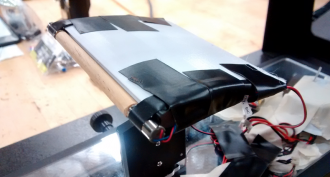 Tech
TechTeen’s research suggests spinning wing parts might boost aircraft safety
An Arizona teen replaced an aircraft wing’s leading-edge flap with a spinning cylinder. This could increase lift, reduce drag and help prevent some aircraft stalls and spins, his data suggest.
By Sid Perkins -
 Tech
TechTeen auto-safety researcher nabs $25,000 science fair prize
Alaina Gassler took home the $25,000 top prize at the Broadcom MASTERS teen science competition. Her qualifying project could boost vehicle safety by eliminating blind spots for car drivers.
By Sid Perkins -
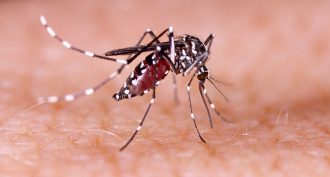 Tech
TechGraphene fabric keeps mosquitoes from biting
Graphene is a super-thin material with many cool uses. The latest: protection against mosquito bites by embedding it in your clothing.
-
 Tech
TechThis device uses the cold night sky to generate electricity
A new device uses the temperature difference between Earth and outer space to create electricity after dark. Powering a lamp, it would be the ultimate night light.
-
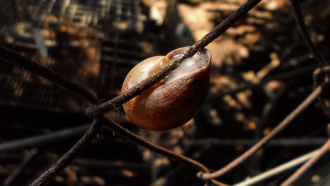 Materials Science
Materials ScienceReversible superglue mimics snail slime
Inspired by snail slime, scientists have created the first super-strong adhesive that can be easily become unstuck, when necessary.
-
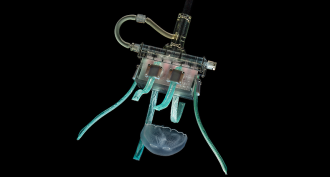 Tech
TechThis robot catches jellyfish with a gentle ‘hug’
A soft robotic hand gently catches jellyfish by trapping the creatures within its silicone fingers.
-
 Health & Medicine
Health & MedicineUltrasound might become a new way to manage diabetes
Ultrasound turns on production of the hormone insulin in mice. Someday, it might help maintain healthy blood-sugar levels in people who were recently diagnosed with diabetes.
-
 Health & Medicine
Health & MedicineExplainer: What is ultrasound?
These sound waves, which fall above the range of human hearing, are important in medicine, medical imaging and more.
-
 Computing
ComputingComputer chips from carbon nanotubes, not silicon, mark a milestone
Silicon has been king of cutting-edge electronics. But that reign may soon end, with carbon nanotubes taking silicon’s place.
-
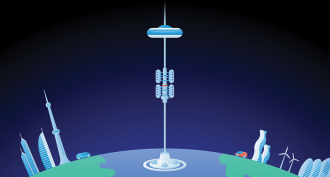 Space
SpaceCould humans build a tall tower or giant rope to space?
The movie Ad Astra shows a space antenna, a spindly structure reaching up into the stars. We look at what it would take to build something that big.
-
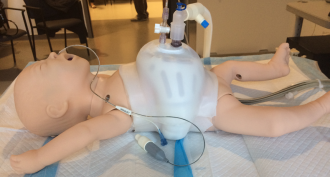 Health & Medicine
Health & MedicineTiny vest could help sick babies breathe easier
A new invention helps sick babies breathe easier. It looks like a tiny lifejacket and it avoids the mask and tubes that get in the way of breastfeeding.